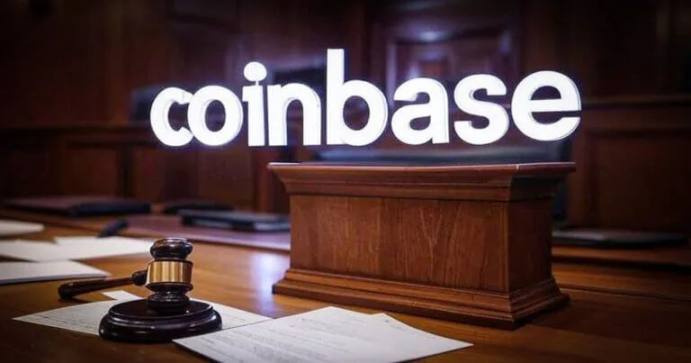Coinbase wins! U.S. court asks SEC to provide "adequate explanation" for missing regulations

Reprinted from panewslab
01/14/2025·24days agoSource: cryptoslate
Compiled by: Blockchain Knight
The U.S. Court of Appeals for the Third Circuit ruled in a Jan. 13 ruling that Coinbase achieved a partial victory in its legal dispute with the U.S. Securities and Exchange Commission (SEC).
The panel, led by Circuit Judge Ambro, found the SEC's reasoning to be "arbitrary and capricious" under the Administrative Procedure Act (APA), a standard that requires agencies to fully explain their actions.
The court's opinion also noted that the SEC's decision to deny Coinbase's application for clearer rules for crypto assets was not well-founded.
Therefore, regulators will have to explain their behavior of avoiding providing clear rules for U.S. Crypto asset companies.
Coinbase filed an application with the SEC in 2022 to adopt new rules based on the unique nature of digital assets such as Crypto assets and tokens.
The company believes that the existing securities law framework is "fundamentally incompatible" with blockchain technology and is economically impractical.
The exchange pointed to a number of existing issues: decentralized issuers, non-investment uses for many digital assets (including transaction fees and network governance), and more.
The SEC rejected the application in December 2023, providing only a brief explanation. The SEC noted that existing law is sufficient and argued that its priorities lie elsewhere, including enforcement actions and progressive measures.
Coinbase subsequently filed a petition for review with the court, asking the SEC to provide more detailed reasons.
In its opinion, the Third Circuit did not order the SEC to initiate a rulemaking, a victory for the agency’s discretion.

However, the court held that the SEC lacked sufficient grounds to reject Coinbase’s application. The court emphasized that while regulators have broad discretion, their decisions must be based on a "clear logical path."
The court added: “The SEC has repeatedly sued Crypto Asset Company for not complying with the law, but did not tell them how to comply with the law. This cunning attitude creates serious constitutional issues and due process should be used to ensure fairness.”
The court also said the regulator had provided no notice of due process requirements or meaningful guidance on which crypto assets were considered securities.
Additionally, the ruling raised questions about how the SEC views stablecoins, utility tokens, and major crypto assets such as BTC and ETH.
The ruling added: “Existing rules are inappropriate for blockchain technology, but the SEC refuses to acknowledge this. Its official silence and conflicting unofficial signals breed uncertainty.”
"Crypto asset issuers and exchanges can only cross their fingers and hope that the agency does not accuse them."
Paul Grewal, Coinbase’s chief legal officer, shared the legal victory and praised the “court’s careful consideration.”
Jake Chervinsky, chief legal officer of Variant Fund, congratulated the exchange and called it a "significant victory" because part of the authorization came from the circuit court.
The judgment sets a binding precedent for future Crypto asset cases.
Ji Kim, CEO of the Crypto Asset Innovation Council (CCI), also congratulated Coinbase and highlighted an amicus brief filed by CCI in the case.
“In the absence of guidance from the SEC, industry participants must clarify whether they must register as dealers and, if so, what assets they can handle in a registered entity,” the filing states.
Katherine Minarik, chief legal officer of Uniswap Labs, emphasized that the two actions of the Third Circuit prompted the SEC to respond appropriately, "as it should."
Alex Thorn, head of research at Galaxy Digital, commented that the ruling was "huge" and "rejected the SEC's position in numerous cases" that no regulation was needed beyond the existing legal framework. rule.
While the ruling did not require the SEC to write a rule, Thorn noted that it would require a full explanation, saying "it's a pretty big question."

 chaincatcher
chaincatcher